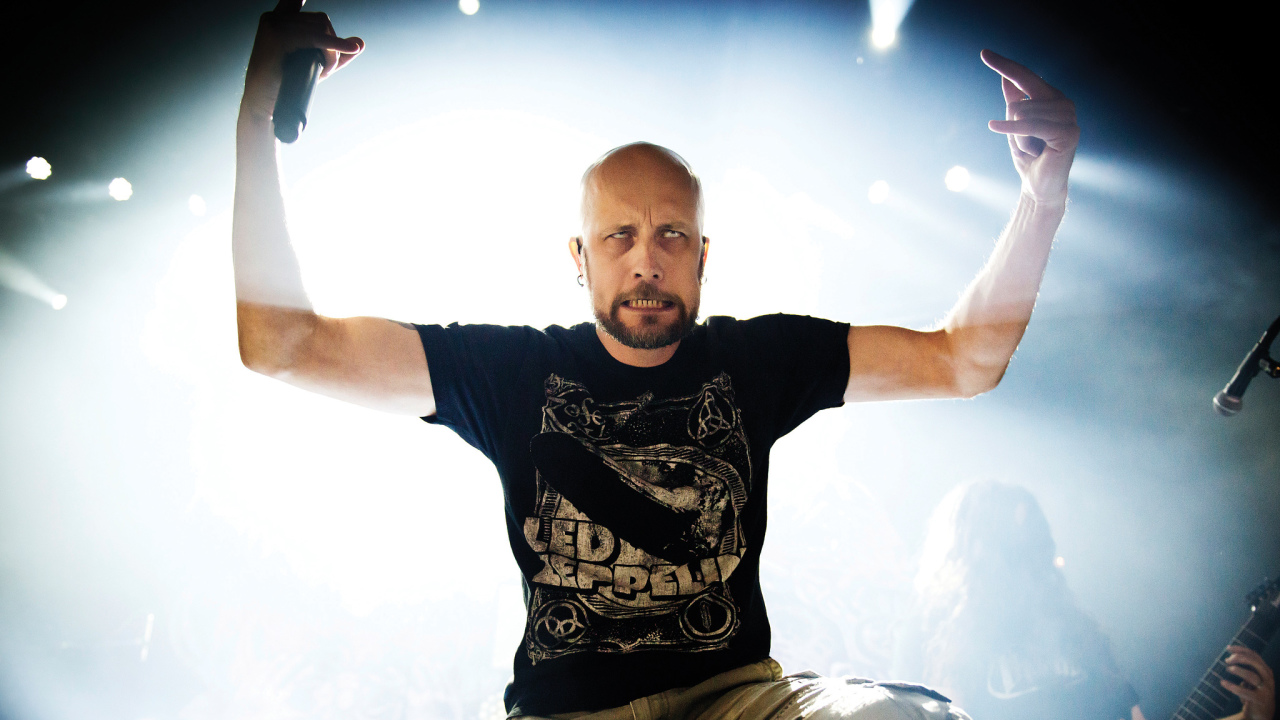It’s an obvious point, but if Meshuggah didn’t exist, today’s prog landscape would look very different indeed.
Not so much the godfathers of djent as the engineer-style DNA whose time-and-space-perforating groove has been transplanted by hordes of fret‑detectives into more humane and hospitable contexts, it’s testament to their pioneering, 25-year journey that their shock to the system remains undiminished.
Tonight they’re commemorating their anniversary in a building that’s become a status-affirming rite of passage, but also one whose circular contours are particularly apt for a band whose alien lurch always sounds like a mothership relaying esoteric instructions direct to your cerebral cortex. They’ve kitted it out in kind too. Vertical banners bearing Giger-esque sigils bestride the stage, while light towers translate their monolithic commands and brainwave-realignment barrage into pulsing blue, red and green rays, striating a crowd constantly reorientated as payload upon payload is teleported instantaneously from other dimensions. For all the merciless and meticulous precision of the Meshuggah machine, it’s a flooding of the senses that bypasses all rational thought.
Much like fellow game-changers Tool, Meshuggah find perfect symbiosis between the cosmic and the primal, at once futuristic and atavistic. This is demonstrated by the moshpit whose frenetic mayhem is clearly overcompensation for the fact that the human body needs several more joints to absorb the stroboscopic palpitations of opener Future Breed Machine or obZen’s constrictive centre-of-gravity-shifting shudders, like being caught in the grip of some mammoth, four-dimensional cyber-boa constrictor. Meanwhile, shaven-headed frontman Jens Kidman leers over the audience as if he were a Mekon overlord surveying his subjects.
From the perilous perspective of the throng, Meshuggah gigs are often total, hermetically sealed, respite-free experiences, but this being a commemorative tour, tonight is a rare occasion to revisit the band’s history and their evolution. Cadaverous Mastication, from their very first EP back in 1989, is a relatively (if only by their later off-the-scale standards) rudimentary light shone onto their thrash roots, albeit built on enough unstable ground that you can see the potential for mutation even then.
Progressive but rough-hewn and stripped down, Greed comes across like New York groove ascetics Prong being constantly reshuffled. Even then there are the early signs of the mercurial, snaking mind-probe leads that escalated later on tracks like Bleed’s super-dense palpitations into a radiant harbinger of imminent critical mass.
But as instructive as the older tracks are, Meshuggah are at their most potent when you’ve lost the capacity for context when they’re too much to assimilate. It’s a sign of their creative virility that it’s still the newer tracks that lose you in the moment, not least the glorious encore from Catch Thirtythree, leaving you feeling like you’ve stepped, punch‑drunk, into a gyroscope, and scrambled to the point of delirium.

